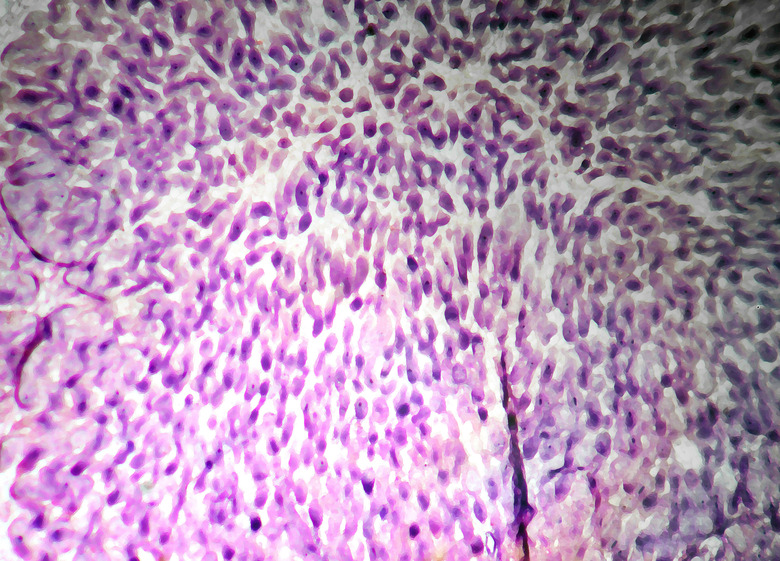List Three Methods That Can Modify Bacteria Genetically
To "modify genetically" means to mutate or change the chemistry of something. You are changing something's genetic structure by adding a substance or condition that creates that change, like turning on a light completely changes a dark room. You can change bacteria — or allow it to change itself, which happens more frequently than people previously thought — in several ways.
Modify by UV Light
Modify by UV Light
Bacteria can become a "living biosensor," finding chemicals in patches of soil that are exposed to ultraviolet light. This causes some bacteria to glow green. A study in microbial genomics by the U.S. Department of Energy discovered this reaction as it used bacteria to leech the TNT elements out of land mines in a war zone. These USDE researchers concluded that different bacteria could be developed to react to different substances. They imagine a time when bacteria can be sprayed on patches of land and then analyzed for traces of valuable chemicals and other sought-after elements.
Modify by Chemicals
Modify by Chemicals
The International Journal of Pharma Sciences and Research reported on studies where researchers at the Department of Biotechnology in India's Acharya Nagarjuna University altered bacteria with chemicals such as ethyl methane sulfonate and ethidium bromide. This strengthened the bacteria's host — called fibrinolytic protease, a substance that builds up the body's resistance to disease. In the case of patients who need to be stabilized for surgery, the mutated bacteria improved the production of their blood platelets. As discussed in Pubmed.gov, India's Vel Tech Multi Tech Engineering College's research team "bombed" bacteria onto mushrooms — ganoderma lucidum — that had medicinal properties, and this improved the mushrooms' ability to protect laboratory mice from symptoms of thrombosis.
Modify by Radiation
Modify by Radiation
Not all bacterial genetic changes are positive. Bombarding bacteria with radiation such as gamma rays can be harmful both to the bacteria strain and its DNA. Damage to bacterial DNA can change the properties of a bacterium, including its rate of growth, its system of feeding and its level of infection. It can even drive bacteria to seek a different host to grow in. All these reactions are desirable only if you want to wipe out a particularly destructive disease; for healthy and necessary bacteria, radiation is dangerously damaging.
Why Modify Bacteria?
Why Modify Bacteria?
Why modify bacteria genetically? It's the best way to persuade nature to produce bacteria on its own. This can create vaccines for previously incurable diseases, fuel efficient gasoline blends for better mileage and medications that resist disease. Nature does most of the changing for us; all we do is reap the benefits of these natural and helpful bacteria.
References
- International Journal of Pharma Sciences and Research: Bacillus Cereus GD 55 Strain Improvement by Physical and Chemical Mutagenesis for Enhanced Production of Fibrinolytic Protease
- Pubmed.gov: Studies on screening, isolation and purification of a Fibrinolytic Protease from an Isolate (VK12) of Ganoderma Lucidum and Evaluation of its Antithrombotic Activity.
- Microrao.com: Bacterial Genetics
Cite This Article
MLA
Stratford, Michael. "List Three Methods That Can Modify Bacteria Genetically" sciencing.com, https://www.sciencing.com/list-three-methods-can-modify-bacteria-genetically-14291/. 24 April 2017.
APA
Stratford, Michael. (2017, April 24). List Three Methods That Can Modify Bacteria Genetically. sciencing.com. Retrieved from https://www.sciencing.com/list-three-methods-can-modify-bacteria-genetically-14291/
Chicago
Stratford, Michael. List Three Methods That Can Modify Bacteria Genetically last modified March 24, 2022. https://www.sciencing.com/list-three-methods-can-modify-bacteria-genetically-14291/
